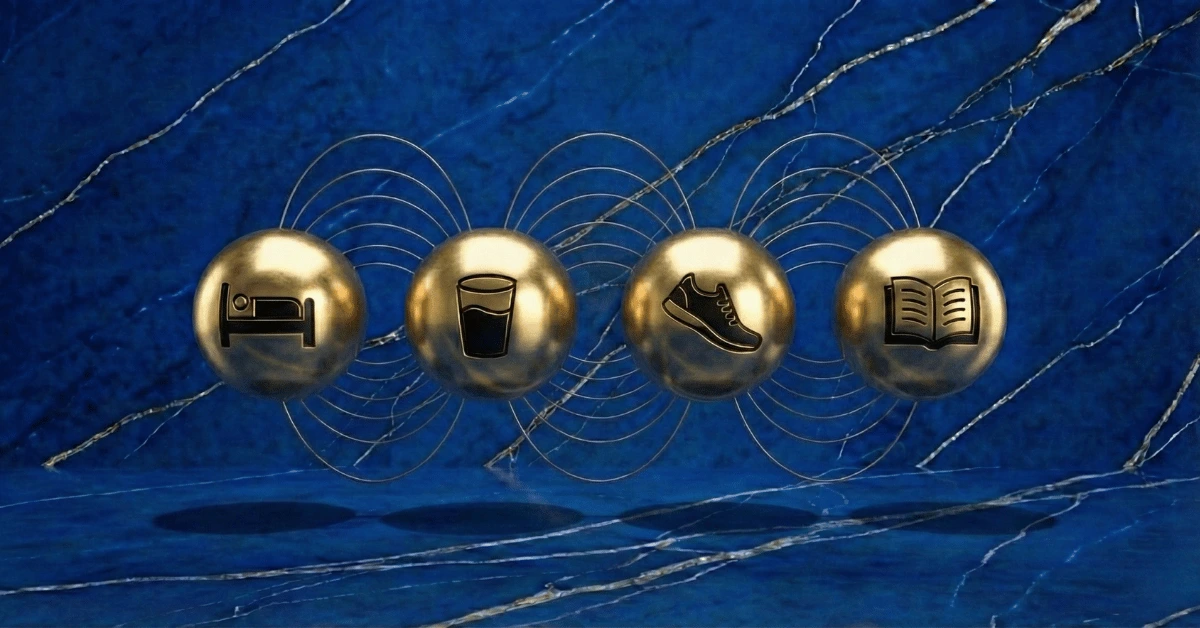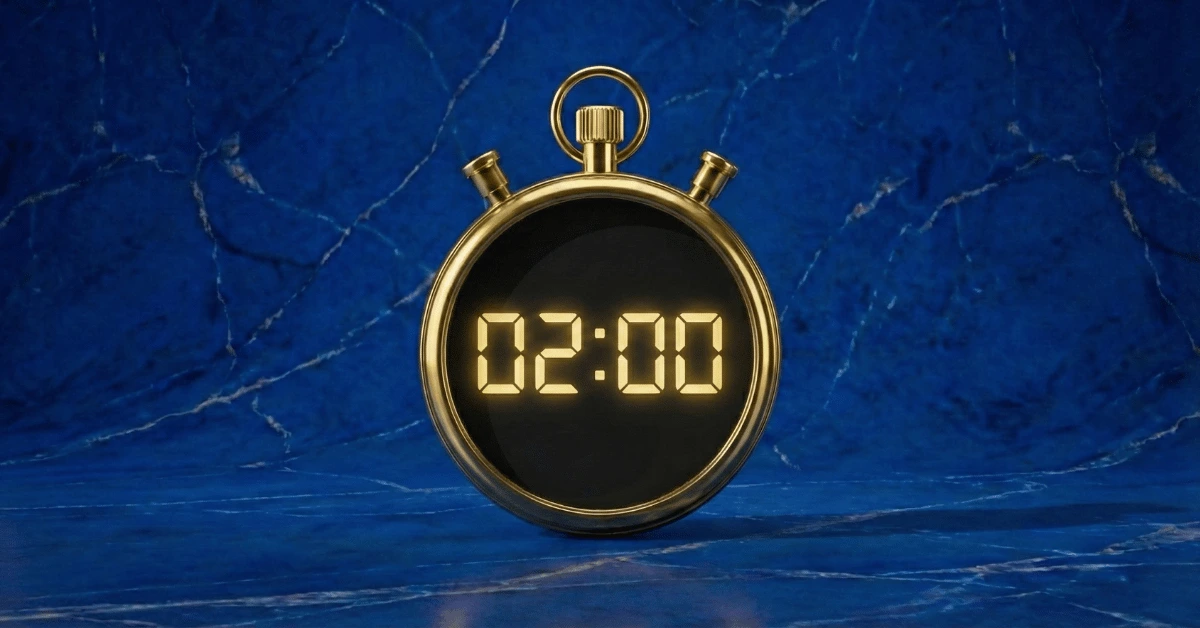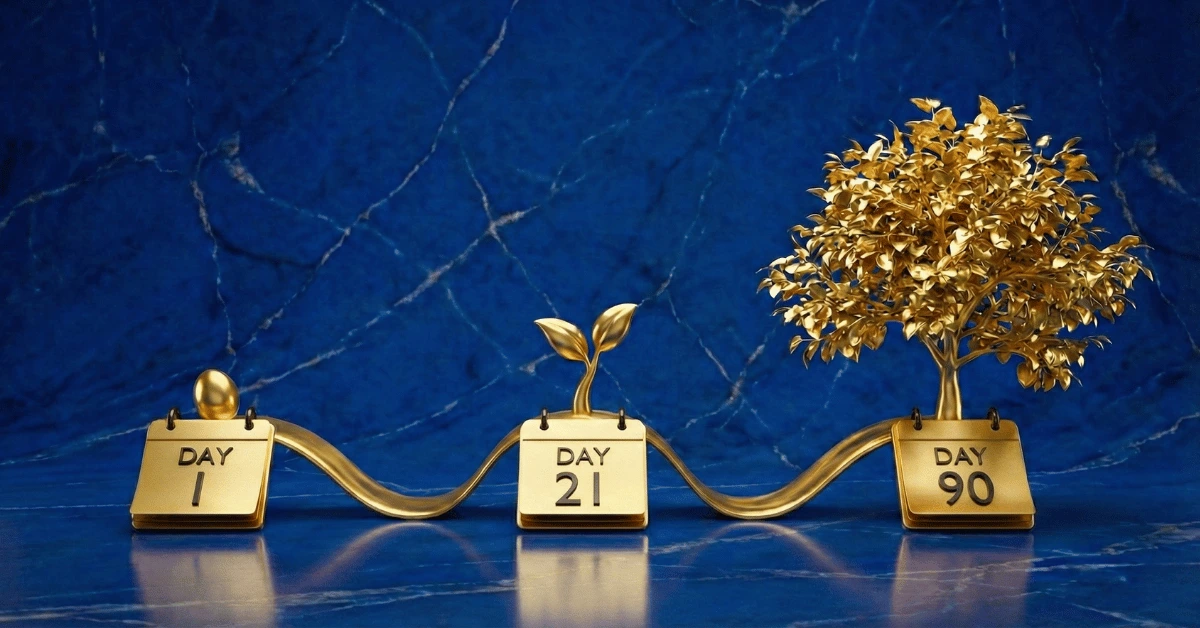Boost Your Habits
Habits shape your life, whether you’re aware of them or not.
Most of what you do each day happens on autopilot. If you’re not in control of your habits, they’re in control of you. That’s how bad routines stick around and good intentions fall apart.
This guide will help you change that. You’ll learn how to break bad habits, build better ones, and create a life that runs in the right direction—on purpose.
Table of Contents
Habit Power-Ups
Want to dive deeper into building better habits? Explore our no-fluff articles packed with practical tips, proven strategies, and real-life results.
What Are Habits?
Habits are the actions you repeat regularly, often without even realizing it. They shape your routines, your decisions, and ultimately, your life. From brushing your teeth to scrolling your phone, habits are the building blocks of your behavior.
Research from Duke University shows that about 40% of what we do each day is driven by habit. That means nearly half of your life is running on autopilot.
The takeaway? You either take control of your habits, or they take control of you. If you want a better life, build better habits – because they’re shaping who you become, whether you notice it or not.
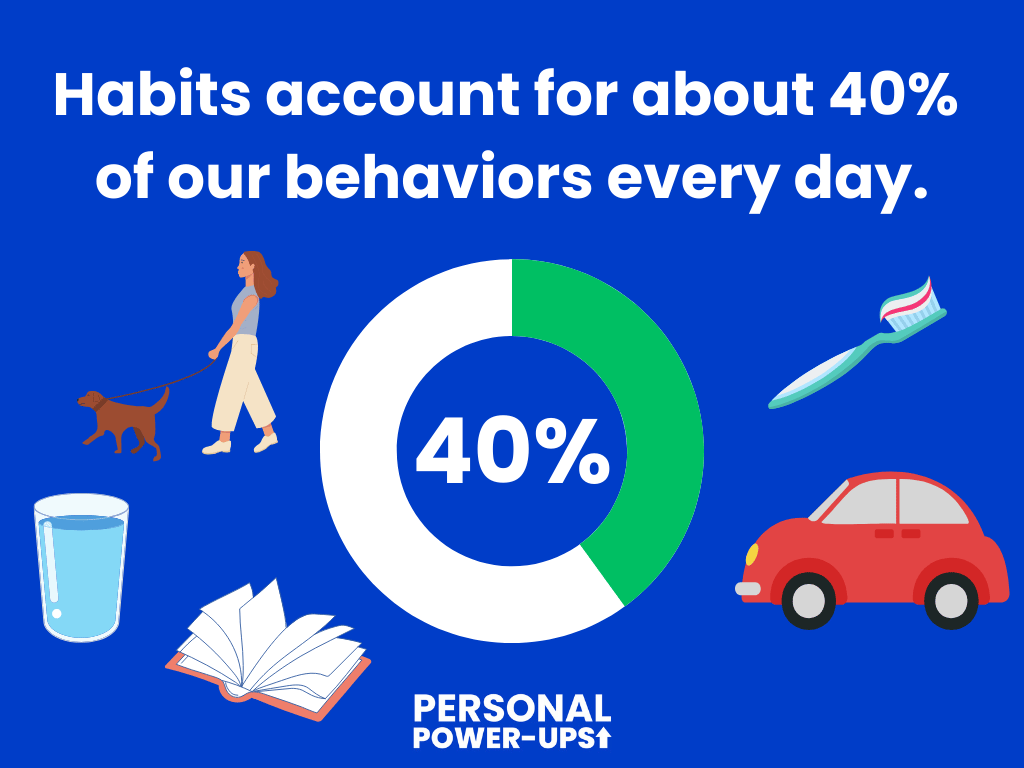
What Types of Habits Are There?
There are several types of habits:
Identity-based habits align with the person you want to become. For example, if you see yourself as a writer, daily journaling or writing sessions reinforce that identity, helping you grow into your desired self.
Keystone habits are powerful habits that trigger positive changes in multiple areas of your life. For instance, starting a regular exercise routine might lead to better sleep, healthier eating, and increased productivity. By focusing on keystone habits, you create a foundation for overall improvement.
Routine habits are the small, everyday actions that help you maintain order in your life. These include things like making your bed, brushing your teeth, or organizing your workspace. While they may seem simple, routine habits are essential for creating structure and stability.
Productivity habits are those that help you manage your time and accomplish tasks efficiently. Examples include setting daily goals, prioritizing tasks, and using tools like to-do lists or calendars. These habits keep you focused and help you achieve more in less time.
Social habits influence how you interact with others. These could be as simple as greeting your coworkers each morning or as significant as regularly networking to build professional relationships. Social habits can strengthen your connections and improve your communication skills.
Understanding these different types of habits allows you to be more intentional about the behaviors you develop. By recognizing which habits have the most impact, you can focus on those that best support your goals and desired lifestyle.
How Are Habits Formed?
Habits form through a habit loop of cue, routine, and reward. A cue triggers the behavior, the craving is the desire for the reward, the response is the action you take, and the reward reinforces the habit. Over time, this loop becomes automatic, making the habit a natural part of your life.
This habit loop was coined by James Clear in his book Atomic Habits, and it is a powerful framework to help you build good habits and stop bad ones.
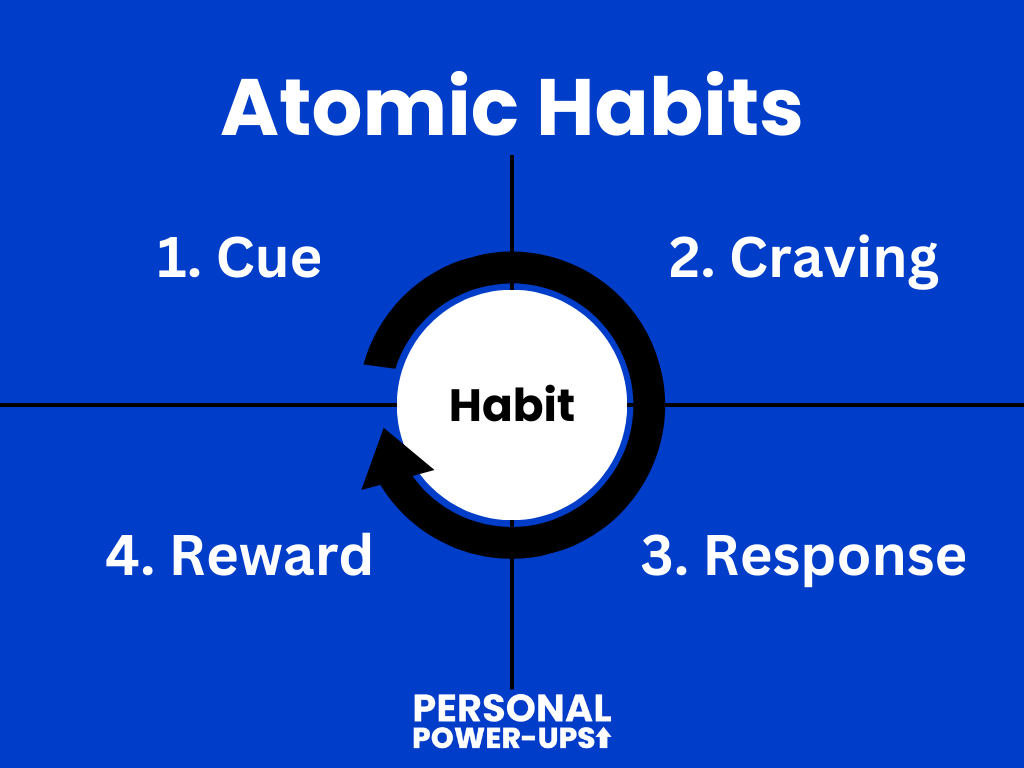
How Long Does it Take to Form a Habit?
You might have heard of the 21/90 rule, but this popular theory is more myth than fact. A 2009 study discovered that it takes 66 days on average to form a new habit. However, this can vary depending on the habit’s complexity and your commitment. Some habits may take a shorter time, while others might require more patience. Consistency is key.

How Do I Build Good Habits?
To build good habits, start small. Choose a simple habit that aligns with your goals. Next, create a routine around it (or use habit stacking), and make it enjoyable. Use reminders to keep the habit top of mind. A habit tracker can be especially useful to keep you on track. Also be sure to reward yourself for sticking to it. Over time, this habit will become part of your daily life.
If you’d like to know more, be sure to check out our article on how to make good habits stick and read more about the individual components of building habits:
Helpful Tools
- Habits scorecard to gain insight into your daily habits and learn which ones you want to change.
- Habit loop worksheet to find ways to make good habits easier and bad habits harder.
- Habit trackers to help you keep track of your habits and motivate yourself to stick with your good habits.
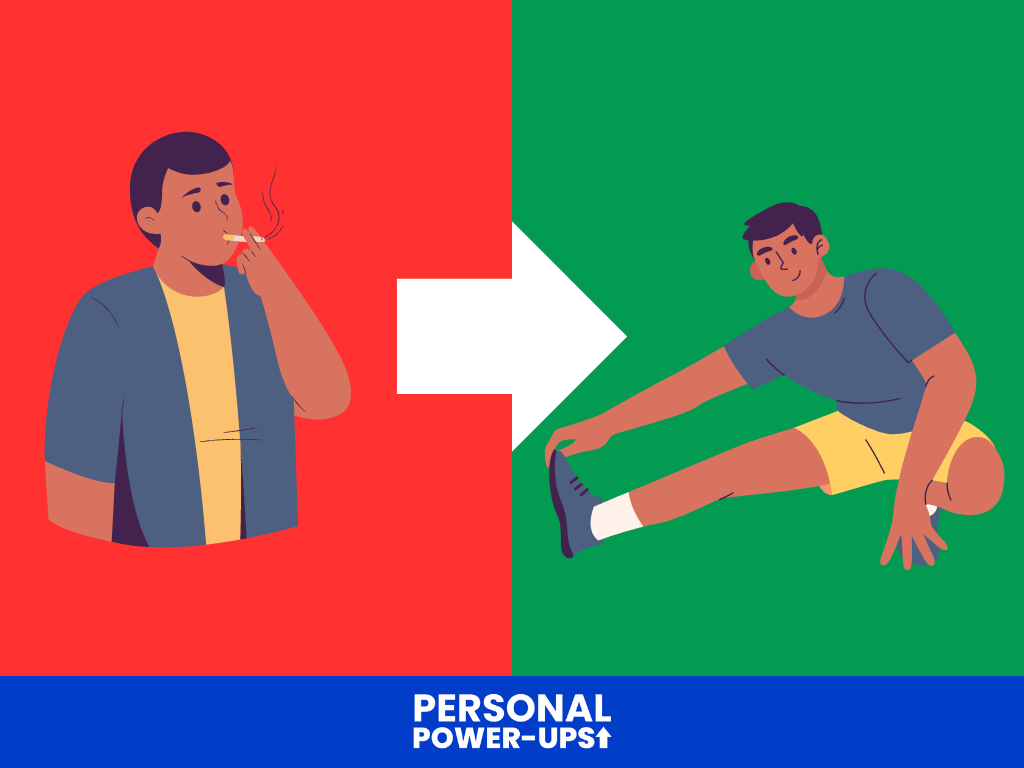
How Do I Stop Bad Habits?
Stopping bad habits involves breaking the habit loop. Identify the cue that triggers your bad habit and replace the routine with a positive action. For example, if stress makes you reach for junk food, try going for a walk instead. Gradually, your brain will associate the new routine with the old cue, helping you kick the bad habit for good. The articles above will also help you stop bad habits, as you can often use the inverse of the methods to build good habits to break bad ones.


